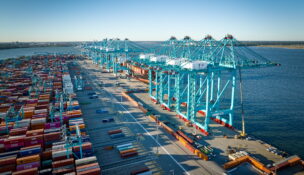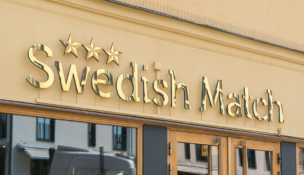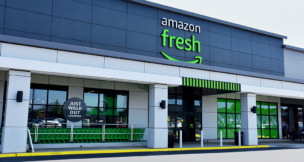Watching and waiting
Future Virginia farm shipments to Cuba may depend on new federal regulations
Tim Loughran //August 30, 2017//
Watching and waiting
Future Virginia farm shipments to Cuba may depend on new federal regulations
Tim Loughran //August 30, 2017//
For the rest of this year, at least, shipments from a terminal in Chesapeake of soybeans, processed soy meal and poultry products to Cuba are expected to continue. At the same time, farmers, packers and lawmakers from Richmond to Washington, D.C., say they have had no indication when — or even if — the Trump administration plans to curtail these shipments.
At an appearance in Miami in mid-June, President Donald J. Trump announced he would end several policy changes implemented by the Obama administration aimed at relaxing U.S. restrictions with Cuba. Trump said he would direct federal agencies to stop individuals from traveling to Cuba on their own and curtail the ability of U.S. companies to do business with any Cuban entity connected to the nation’s armed forces or intelligence agencies.
Federal agencies, including the Treasury Department and the Department of Agriculture, were expected to begin work on the new regulations 30 days after Trump’s announcement and release them no earlier than December, according to Todd Haymore, Virginia’s secretary of commerce and trade, and Basil Gooden, the state’s secretary of agriculture and forestry.
The Cuban government — which includes the military, its police forces and its intelligence agencies — buys all imported goods before reselling them or distributing them to local and foreign-owned businesses. It’s unclear whether farm exports from Virginia and the rest of the United States will be exempt by tighter export controls.
In dollar terms, Virginia continues to rank among the top U.S. exporters of farm products to Cuba. The nation’s top exporter two years ago, Virginia last year and through May of this year ranked third behind Louisiana and Alabama.
From 2015 to 2016 U.S. farm exports to Cuba jumped more than 36 percent to $245.4 million and rose 26.6 percent through the first five months of this year to almost $117 million. Virginia’s shipments dropped 31.5 percent last year and 6 percent during the first five months of 2017, to $28.5 million and $17 million, respectively.
Salisbury, Md.-based Perdue Farms and Perdue Agribusiness account for almost all of the farm products sent from Virginia to Cuba, according to Katie Frazier, president of the Virginia Agribusiness Council.
Frazier says she and her members hope that any new restrictions on farm exports to Cuba won’t apply to contracts already signed with the Cuban government and its lone food importing agency, the Empresa Comercializadora de Alimentos, known as ALIMPORT.
“I think the trick is going to be to see what the administration’s rules are actually going to look like,” she says. “Until we see things kind of shake out … it’s kind of hard to predict what’s going to happen.”
U.S. Rep. Don Beyer (D-8th District), a member of the House of Representatives bipartisan Cuba Working Group, has mixed feelings about how Virginia farm exports may be affected. “It’s very possible the effects will be limited,” he says, citing Trump’s initial promises to clamp down primarily on the tourism industry.
“The restrictions he did announce about no more individual travel to Cuba don’t affect agriculture very much,” Beyer says. “The part that does is that some of the port facilities are owned by the military, some of the grain storage facilities are owned by the military. Per the new Trump regulations, you can’t directly deal with contributing profits to the military. So that’s really where we could get handcuffed some.”
Gooden, the agriculture and forestry secretary, indicates in an email that he hopes U.S. farm exports to Cuba will escape the worst of any new regulations from the Trump administration. Yet, he also fears for the future of Virginia farm exports to Cuba, which started in 2003 under the governorship of current U.S. Sen. Mark Warner.
“Based on the president’s announcement last month, the new regulations are likely to make it more complicated and more difficult for U.S. agribusinesses to export products to Cuba,” says Gooden. “Anytime uncertainty or burdensome regulations are introduced to trade that is bad for our businesses.”
For his part, Todd Haymore is both hopeful for Virginia farmers and concerned about the possible long-term negative impact any cutback in farm exports to Cuba may have on the state’s agribusinesses.
“Based on what I know right now, what the Trump administration is proposing, Virginia will still be an exporter,” Haymore says. “We just hope relationships don’t get fractured to the point where the Cubans look elsewhere for agricultural products they are currently buying from Southeastern U.S. states including Virginia.”
In 2000, President Bill Clinton persuaded Congress to relax a portion of the U.S. economic embargo against Cuba, permitting export of medicines and food products to the island under strict financing restrictions. Those restrictions required either all cash transactions or letters of credit to Cuba arranged through non-U.S. banks.
Four successive Democratic and Republican Virginia governors have worked to promote greater farm trade between the commonwealth and Cuba.
“We’ve worked really hard to build those relationships,” says Haymore. “At some point in the future, it’s not a matter of ‘if’ but a matter of ‘when’ Cuba and the United States will have normal relations. We want to do everything that we can within existing legal framework to continue growing that relationship.”


















